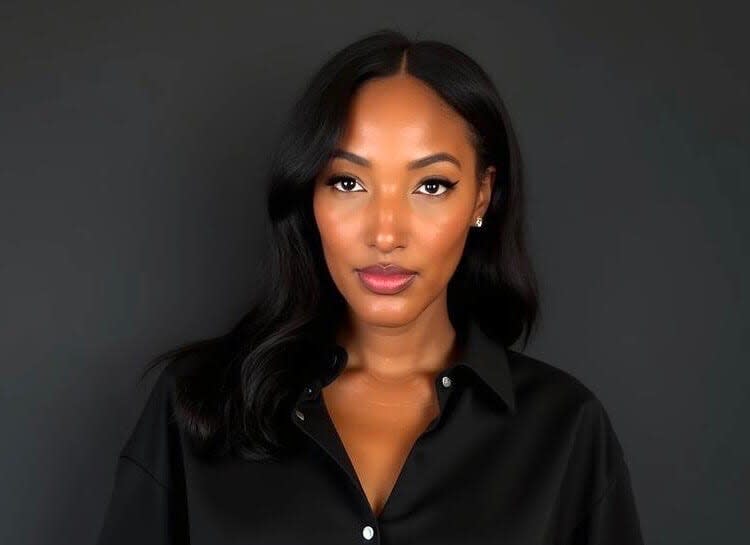
Fragrance brand Brown Girl Jane’s perfume bottles sit on shelves at Sephora near some of the most storied labels in the fashion and beauty world, including Prada and Dior.
For the Black-owned brand, getting a retailer to bet on it was just the start, Brown Girl Jane CEO and co-founder Malaika Jones said. She said Sephora has supported the company so it can better compete with well-known brands with huge marketing budgets and glossy celebrity endorsements.
Brown Girl Jane got a $100,000 grant last year to help grow its business through Sephora’s Accelerate program, which aims to boost founders who are people of color. Sephora spotlighted the fragrance brand in an email to customers in early February, putting it in front of potential shoppers who don’t know its name. Brown Girl Jane’s sales more than doubled after Sephora began carrying the company’s fragrances online and at select stores about a year ago.
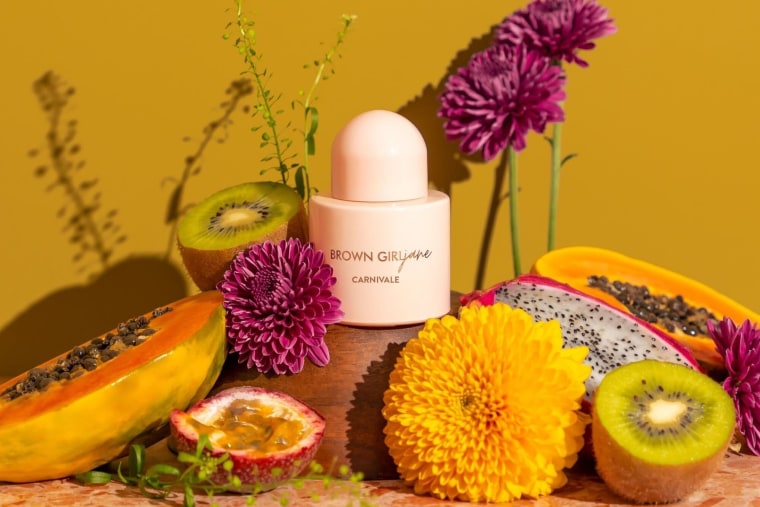
While Sephora has put its weight behind its brand incubator, much larger retailers like Walmart and Target recently scaled back similar efforts focused on finding and funding more brands founded by people of color. Without that support from the retailers themselves, brands like Brown Girl Jane could face a tougher time getting on shelves — and succeeding once they get there.
“For small brands, but for any brands, really, it’s a constant fight for relevance and for visibility,” Jones said. “And so when you don’t have that commitment or even that understanding from the retailer side, it becomes quite difficult for small brands to survive — even when they’ve made it on shelves.”
When retailers launched supplier diversity programs — many of them in the months after police killed George Floyd in 2020 — top industry leaders including Walmart CEO Doug McMillon and Target CEO Brian Cornell spoke out about the institutional barriers that people of color face, including when financing their businesses. Now, as more retailers drop diversity, equity and inclusion programs, Black-owned brands may find it harder to clear those hurdles.
In January, Target dropped specific DEI pledges that it made four years ago after Floyd was murdered a short distance from its Minneapolis headquarters. Among those goals, the big-box retailer had committed to adding products from more than 500 Black-owned brands to its shelves or website and spending $2 billion with Black-owned businesses by 2025.
Late last year, Walmart confirmed that it was ending key diversity initiatives, including winding down the Center for Racial Equity, a nonprofit that the retailer started and funded with $100 million to tackle racial inequities. It had chosen finance as one of those focus areas, noting the gap in funding for Black entrepreneurs.
Gutting those efforts could jeopardize a valuable pathway for Black founders to build their businesses and reach the millions of shoppers who browse the websites and aisles at the nation’s largest and best-known retailers.
Not every major retailer has dropped DEI initiatives. Sephora, Costco and E.l.f. Beauty, among others, have reaffirmed their commitments. And the most prominent effort to increase the share of Black-owned brands on retail shelves, the 15 Percent Pledge, still has major backers.
Companies from Google to Ford and Tractor Supply have rolled back their initiatives to boost representation of people of color, women and LGBTQ+ people, as political backlash and pressure from conservative activists has intensified. The trend only accelerated after President Donald Trump issued an executive order banning DEI programs in the federal government and describing the efforts as “dangerous, demeaning, and immoral race- and sex-based preferences.”
It’s a sharp change from about five years ago, when companies released a wave of announcements committing to fighting inequity. They made bold pledges to add more diversity to their workforces and C-suites, seek out Black and minority vendors and donate to philanthropic causes that fought racism and supported expanded opportunities for marginalized groups.
Fear of litigation, activist investor scrutiny and political pressure has caused companies to backpedal or keep their initiatives below the radar, said Jon Solorzano, an attorney at Vinson & Elkins who advises companies on DEI.
One of those lawsuits targeted The Fearless Fund, an Atlanta-based venture capital fund dedicated to awarding grants to businesses founded by Black women to bridge a longstanding funding gap. Only 1.3% of the more than $345 billion raised by venture-backed startups in 2021 went to Black founders, according to Deloitte and Venture Forward’s 2023 report. About 2.4% went to startups led by female founders and 2.1% of that total went to startups led by Hispanic founders.
American Alliance for Equal Rights, a conservative group founded by Edward Blum, sued The Fearless Fund in 2023, accusing it of discriminating against non-Black business owners. Blum previously fought against race-based college admissions, a campaign that led to the Supreme Court’s ruling that affirmative action policies are unconstitutional — which some companies cited last year in ending their DEI initiatives.
As part of a settlement reached last year, The Fearless Fund shut down its grant program.
Solorzano said that lawsuit had a chilling effect and will “seriously undermine some of these [supplier] initiatives.” He said he expects more corporations to scrub numbers from their diversity programs, including supplier programs focused on increasing Black- and minority-owned brands on shelves.
Yet ending or scaling back efforts to seek out merchandise that reflects the diversity of U.S. consumers could put a company at risk, too, he said. Not only could companies face boycotts, but also they could miss out on fresher items and brands that help them stand apart from competitors.
Even as some retailers walk back diversity pledges, Sephora, Costco and E.l.f. Beauty, have doubled down on those efforts not as a feel-good move, but as a meaningful part of their business strategies.
Sephora, a 15 Percent Pledge member which is owned by LVMH, has increased the percentage of Black-owned brands on its shelves from 3% in 2020 to about 10% as of 2025, said Artemis Patrick, CEO of Sephora North America. In its hair category, 15% of the brands are Black-owned.
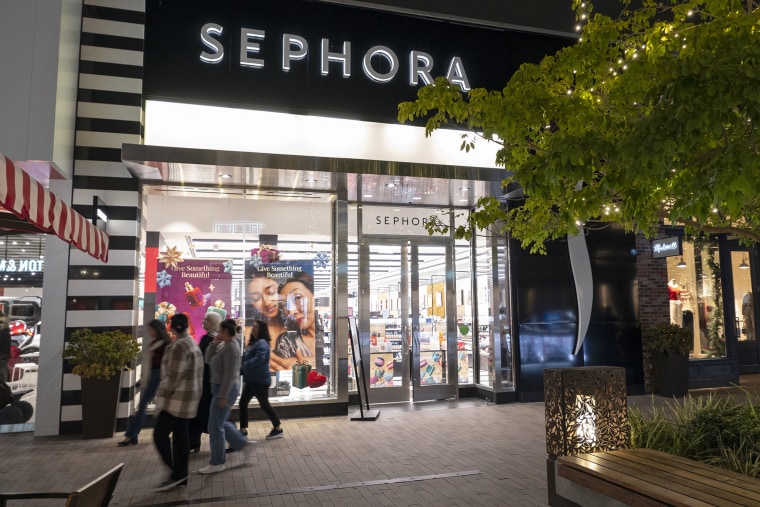
Sephora started Accelerate in 2016 with a focus on female founders. The six-month incubator helps mentor business owners, connects them to investors and gives them the opportunity to launch at Sephora.
The retailer pivoted the program in 2020 to focus on Black and other minority founders to address “the need of the evolving consumer and where we truly did feel like we had an assortment gap,” Patrick said.
So far, more than 33 Black- and minority-owned brands have gone through the incubator, she said.
“Our business is really good and the fact that we’ve been really focused on diversifying our assortment, I think there’s a strong correlation,” she said.
She added “it would be very strange in a beauty category to not be driving diversity in your assortment that meets the needs of your clients.”
At Costco’s annual meeting last month, 98% of shareholders rejected a proposal that requested a report on the risk of Costco maintaining diversity, equity and inclusion initiatives.
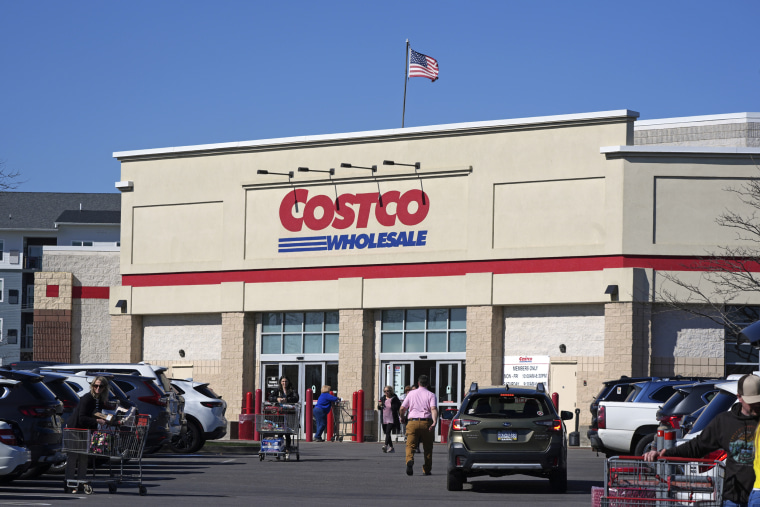
In a proxy statement ahead of the meeting, the warehouse club’s board of directors said diversity benefits its business and helps it better serve a wide range of customers.
“Among other things, a diverse group of employees helps bring originality and creativity to our merchandise offerings, promoting the ‘treasure hunt’ that our customers value,” it wrote.
Costco’s board added that diversity across its suppliers “fosters creativity and innovation in the merchandise and services that we offer our members.”
Tarang Amin, CEO of popular Gen Z makeup brand E.l.f. Beauty, called the company’s diversity “a key competitive advantage in terms of our results” in an interview with CNN earlier this month. He said the company’s employees are 74% women, 76% Gen Z and millennial and over 44% diverse and “reflect the community we serve.”
Nearly five years ago, Aurora James challenged companies in an Instagram post to dedicate more of their shelf space to Black-owned businesses. That idea, which she proposed days after Floyd’s murder, started the 15 Percent Pledge.
“So many of your businesses are built on Black spending power,” she wrote at the time. “So many of your stores are set up in Black communities. So many of your posts seen on Black feeds. This is the least you can do for us. We represent 15% of the population and we need to represent 15% of your shelf space.”
Sephora was the first company to sign the pledge. About 22 companies are active participants in the pledge, including Macy’s and Nordstrom, according to the nonprofit. The 15 Percent Pledge has a directory of Black-owned brands on its website. It also awards grants to businesses and raises money to back Black-owned businesses through an annual gala, which drew celebrities, actors and business leaders including Kim Kardashian, Kelly Rowland and Jesse Williams earlier this month.
Some of the changes inspired by the pledge are visible on shelves.
Sephora has more than tripled the Black-owned brands on its shelves in the past five years. In the email to customers, it noted that number had spiked from eight to 30 since it took the Fifteen Percent Pledge in 2020.
Those brands include makeup, shampoos and more backed by small entrepreneurs and celebrities, including Fenty Beauty by Rihanna, Pattern by Tracee Ellis Ross and Sienna Naturals, which was co-founded by Hannah Diop and actress Issa Rae.
Nordstrom, which also signed on to the 15 Percent Pledge, has now added more Black-owned brands, too, including Buttah Skin, Briogeo and Honor the Gift.
And Macy’s, another 15 Percent Pledge participant, has had an accelerator for over a decade which was launched to support underrepresented brand owners and founders. The Workshop, which started in 2011, offers grant funding and education for companies seeking to make it on retailers’ shelves and websites.
James, who herself is a Black founder of a luxury brand called Brother Vellies, said she’s disheartened to see companies back away from supporting smaller Black- and minority-owned suppliers.
“The idea is not about giving preferential treatment,” she said. “The idea is about making sure that we cast our net wide enough that we’re not just looking at the obvious channels.”
By relying more on big conglomerates, retailers miss out on funding smaller U.S. business that create jobs and stimulate the local economy, she said.
“In a time when I think small business all across America is suffering, to specifically target groups of founders and say, ‘You can’t get access or opportunity,’ just feels like a blow to all small businesses across America,” she said.
She said the reversal of DEI by some companies show their commitments never ran deep.
“Target never took the pledge. Walmart never took the pledge,” she said. “I don’t think that they were ever really that serious about what they were doing.”
Not every company has stuck with the pledge. Gap did not renew with the group late last year — but said in a statement that it’s not backing away from DEI efforts. Over the past year, the company has gone through major changes as part of a turnaround led by Richard Dickson, its new CEO.
In a statement, the denim and apparel retailer, which also includes Old Navy and Athleta, said the pledge looked different for the company because it sells and manufacturers its own brands. It said it “joined the pledge with the goal of increasing our diverse access and pipeline programs, and we met and exceeded that goal.”
A Gap spokesman declined to share specific goals, but said they focused on recruiting talent from diverse backgrounds.
This week, Gap rolled out a limited-time initiative to support Black businesses by selling shirts and hoodies from six Black designers from Harlem’s Fashion Row online and in select stores.
Walmart and Target have downplayed concerns that they will start to carry fewer Black-owned brands. A Walmart spokesperson pointed to the company’s Supplier Inclusion Program, which focuses on adding products from smaller vendors. She said the company also works with banks and lenders to expedite payments for orders or connect suppliers to loans.
Even as Target phases out DEI goals for Black-owned businesses, the discounter will keep offering Black-owned and minority-owned brands, a spokesman said. On its website, it’s promoting its collection of Black History Month items. He said Target will offer its Forward Founders program two times per year, which is designed for early-stage consumer packaged goods companies across categories including beauty, food and pets.
When Target launched Forward Founders in 2021, the company said the program was “designed to help Black-owned businesses increase their potential for long-term success in retail.”
Since last year, Target’s website has said the program is “evolving” — noting that founders no longer fill out an application for programs and Target will reach out to them if they’re “a strategic fit.” A spokesman said the company’s changes to its DEI initiatives do not affect its programs to boost founders, but did not offer more detail.
Some Black founders have warned against boycotting Target and other retailers that have walked back DEI efforts, saying it could further hurt Black-owned businesses.
In an Instagram post, social media personality, actress, and entrepreneur Tabitha Brown said “it’s definitely heartbreaking to feel unsupported.” But Brown, who has an active contract with Target, encouraged shoppers to use their dollars strategically when shopping Target’s shelves.
She’s developed merchandise with Target, including a collection of clothing, swimwear and home decor. Target also carries Donna’s Recipe, a haircare brand she co-founded.
“You can still go into those stores, if you choose to, and buy specific brands that you want to support. And let the other things not get your money,” she said.
She said if sales of Black-owned brands fall, retailers will remove them from their shelves.
“And then what happens to all the businesses who worked so hard to get where they are?” she said.
Handbag designer Brandon Blackwood said he worries that it will be harder for the next founder like him to get picked up by a major retailer.
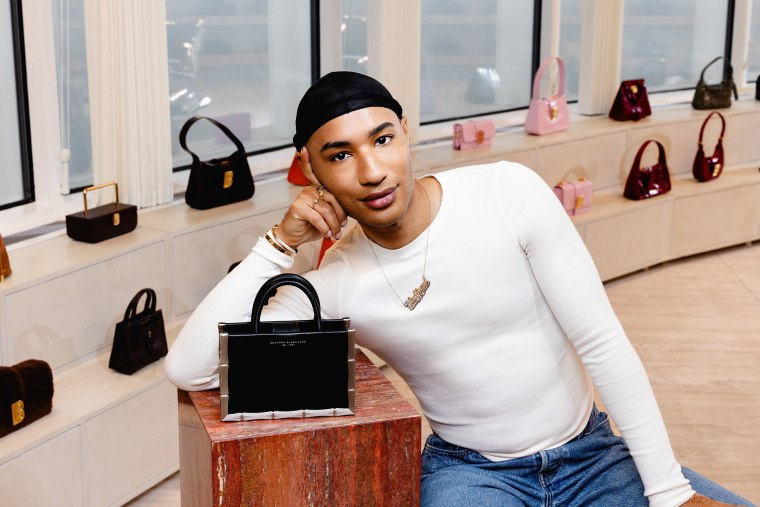
His brand took off in 2020 during the Black Lives Matter movement, after he made a tote decorated with three words instead of a logo: “End Systemic Racism.” The bag gained traction through social media.
Yet he said major retailers that picked up handbags from his brand at the time, including Neiman Marcus, Bloomingdale’s and Nordstrom, “helped put my product in front of a lot of people that wouldn’t necessarily have seen it.”
“That really helped us and that really helped our brand awareness,” he said.
If retailers drop supplier diversity initiatives, he said it will thin out choices for customers.
For Brown Girl Jane, winning the confidence and business of major retailers — and particularly, Sephora — has been game changing, said Jones, the company’s co-founder and CEO. The brand got picked up first by Nordstrom in 2021. Now, Macy’s, Saks Fifth Avenue and Bloomingdale’s also sell its fragrances.
Sephora is its the biggest wholesale deal so far: The beauty retailer carries some exclusive scents, including Carnivale, a fragrance that sells for $102 and blends together juicy mango, sandalwood and creamy vanilla.
Jones said the company’s annual revenue is now in the $5 million to $7 million range. Roughly half of the company’s sales come from wholesale.
She described getting picked up by Sephora last year as a “vote of confidence,” but said they’ve also been “the biggest champion and a true partner of the brand.”
And she said that customers of all races desire her brand — and others from Black founders. About 40% of Brown Girl Jane’s customers are white, she said.
By backing away from DEI, she said companies also send a message to their buyers that casting a wide net for new brands doesn’t matter.
“It’s one thing to say ‘Ok, yeah. They [buyers] can still find who they find,’” she said. “But we know that without intentionality, a lot of these brands are just going to be overlooked.”
